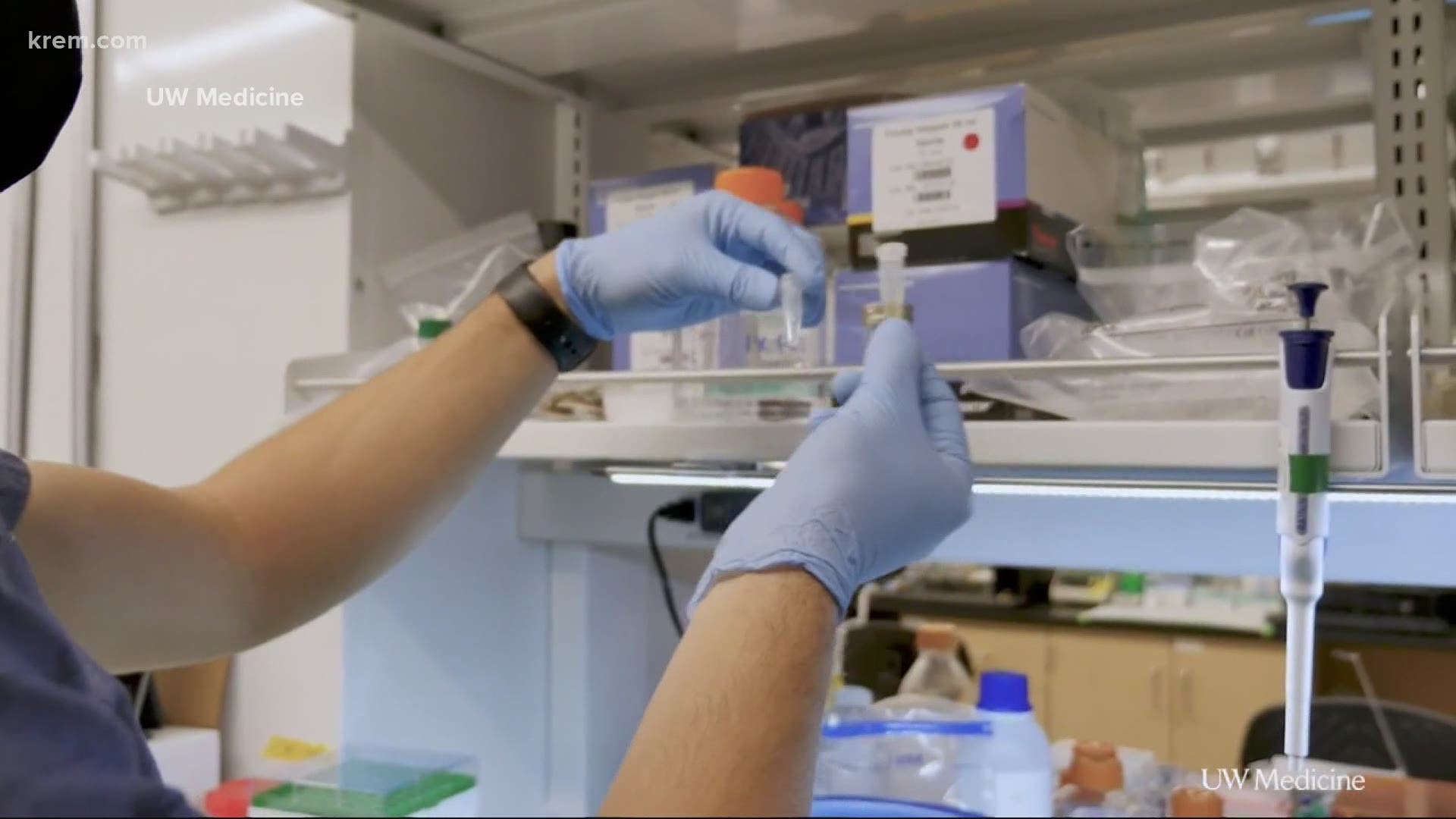SPOKANE, Wash. — The COVID-19 vaccine is top of mind for many people as the Spokane Arena opens as a mass vaccination site on Wednesday.
More people are eligible to get the vaccine in Tier 1 of Phase 1B. They also have questions about the vaccine and some people are on the fence about whether or not to get it.
MultiCare Doctor Gretchen LaSalle joined Up with KREM to answer some commonly asked questions about the COVID-19 vaccine, nd dispel some misinformation.
The following interview has been lightly edited for length and clarity.
Q: Can you talk to those that are on the fence. What do they need to know about this vaccine?
Dr. LaSalle: We have this amazing opportunity, with these two vaccines that we have right now, to really put an end to this pandemic and get back to some semblance of normal life - and these vaccines are extremely effective, they're about 95% effective, and safe.
They've undergone the same rigorous testing that all vaccines have undergone even though they've come out faster than traditional vaccine production, these are some really excellent vaccines that I feel extremely confident in.
Q: The vaccine was developed really quickly. Can you talk about how they were able to ensure that these vaccines received the same amount of care and due process as traditional vaccines?
Dr. LaSalle: The oversight has been no different than any other vaccine that has been produced in the past. In fact maybe even a little bit more scrutinized because of the time frame.
And there's a variety of reasons why this vaccine has come about so quickly, and that's largely due to efficiencies in the process, not corners cut. So the big reason for this is that this SARS-CoV-2 virus is not our first coronavirus. We've had SARS in the past and vaccines were under development for those illnesses as well, so we've had a little bit of a head start.
In addition, the mRNA technology is not new. It's been under study with illnesses like flu, zika, and so that platform was already ready to go and all we needed to do was plug in that messenger RNA genetic sequence, the spike protein for COVID, so that enabled this to happen more quickly.
Additionally, just the money that was invested in this process. It takes a lot of time to find investors for vaccine production and so scientists and researchers have really had everything at their disposal they needed. There's been tremendous international research cooperation around the world and because we've had that money the vaccine manufacturers were able to start production on vaccines even before they had authorization and so once they were authorized by the FDA and approved by the CDC we were able to hit the ground running getting those vaccines rolled out.
Q: Can you speak to the side effects of the vaccine?
Dr. LaSalle: Sure, what I'm telling folks is that we can expect a little bit of a reactogenicity with these vaccines. That's the chills, the achiness, sometimes a low grade fever and particularly a little bit more common on the second dose than the first. But really there's a wide variety of responses.
I had my first one and it was less painful than a tetanus shot and no systemic symptoms. But I do caution folks to expect a little bit of that achiness and tiredness in their planning for the vaccine. But this is our normal immune response this can happen with any vaccine this just indicates that our immune system is working and although it's a little bit uncomfortable it's also a good sign. And as long as we look ahead and know what to expect it's less scary.

